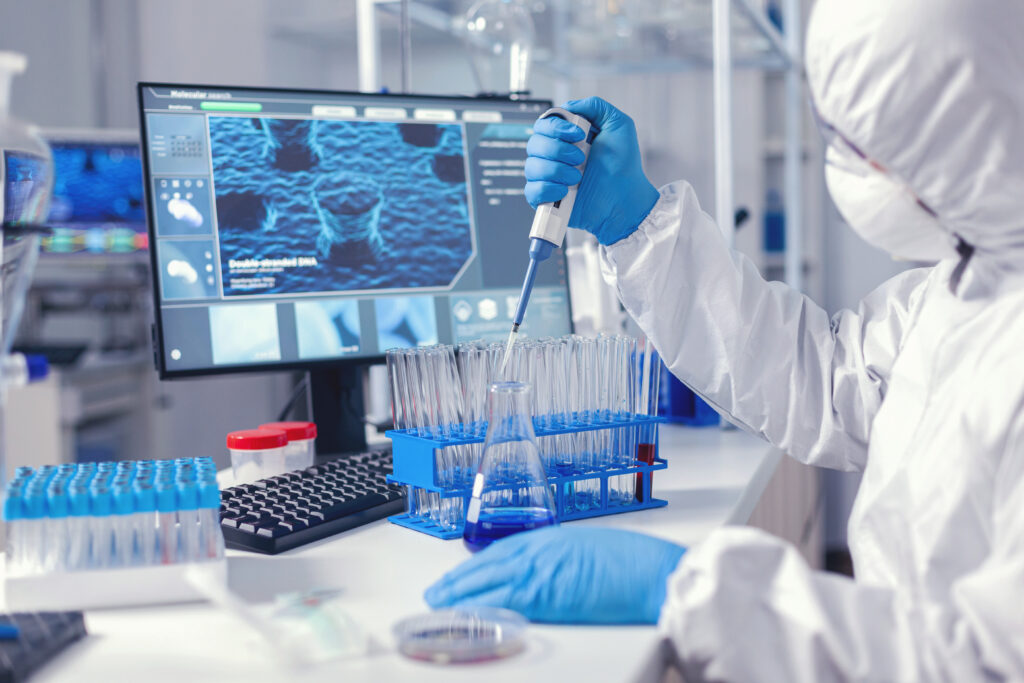The Role of Artificial Intelligence in Pharmaceutical Manufacturing
- Discuss how AI is transforming pharmaceutical manufacturing processes in the UK, improving efficiency, quality control, and overall productivity.
Introduction
Artificial Intelligence (AI) is revolutionizing various industries, and pharmaceutical manufacturing is no exception. The integration of AI technologies holds the potential to enhance efficiency, quality, and innovation in the production of pharmaceuticals. This article explores the multifaceted role of AI in pharmaceutical manufacturing and its transformative impact on the industry.
I. Optimizing Drug Discovery and Development
1.1 Accelerating Drug Discovery Processes
AI expedites drug discovery by analyzing vast datasets and identifying potential drug candidates more efficiently. Machine learning algorithms can predict the pharmacological properties of compounds, reducing the time and resources required for early-stage research.
1.2 Predictive Modeling for Clinical Trials
AI-driven predictive modeling enhances the design and execution of clinical trials. By analyzing patient data, AI algorithms can identify suitable candidates, predict potential adverse effects, and optimize trial protocols, contributing to more successful and cost-effective clinical trials.
II. Enhanced Process Optimization in Manufacturing
2.1 Predictive Maintenance for Equipment
AI enables predictive maintenance by analyzing equipment data in real-time. This proactive approach reduces downtime by anticipating potential failures, optimizing maintenance schedules, and ensuring continuous operation of manufacturing equipment.
2.2 Quality Control and Assurance
Machine learning algorithms enhance quality control processes by identifying deviations in manufacturing parameters and product quality. Real-time monitoring and analysis contribute to the production of high-quality pharmaceuticals, minimizing defects and ensuring compliance with regulatory standards.
III. Supply Chain Optimization and Management
3.1 Demand Forecasting and Inventory Management
AI algorithms analyze historical data and market trends to improve demand forecasting. This, in turn, facilitates efficient inventory management, reducing excess stock and minimizing the risk of shortages, contributing to a streamlined and responsive supply chain.
3.2 Supply Chain Visibility and Traceability
Blockchain technology, often integrated with AI, enhances transparency and traceability in the pharmaceutical supply chain. This ensures the integrity of the supply chain, reduces the risk of counterfeit drugs, and complies with stringent regulatory requirements.
IV. Personalized Medicine and Drug Production
4.1 Individualized Drug Formulations
AI contributes to the development of personalized medicine by analyzing patient data to tailor drug formulations to individual characteristics. This customization enhances treatment efficacy, minimizes side effects, and represents a significant advancement in patient-centered care.
4.2 Continuous Manufacturing Processes
The implementation of AI in continuous manufacturing processes improves efficiency and flexibility. Real-time monitoring and adjustment of production parameters enable a more agile response to variations, resulting in consistent product quality and reduced manufacturing costs.
V. Regulatory Compliance and Reporting
5.1 Automated Regulatory Compliance Checks
AI streamlines regulatory compliance by automating checks and ensuring adherence to evolving pharmaceutical regulations. This reduces the risk of human error in compliance reporting and enhances overall regulatory transparency.
5.2 Data Security and Privacy Compliance
AI technologies contribute to data security and privacy compliance by implementing robust encryption, authentication, and access control measures. This is particularly crucial in handling sensitive patient data in the pharmaceutical manufacturing process.
VI. Future Trends and Innovation
6.1 Integration of AI with Internet of Things (IoT)
The integration of AI with IoT devices in pharmaceutical manufacturing enhances connectivity and data exchange. This synergy enables real-time monitoring, communication between machines, and further optimization of production processes.
6.2 AI-Driven Drug Repurposing
AI facilitates drug repurposing by analyzing existing drug databases and identifying new therapeutic applications. This innovative approach expedites the identification of potential treatments for various diseases, saving time and resources in the drug development pipeline.
VII. Conclusion
Artificial Intelligence is rapidly reshaping the landscape of pharmaceutical manufacturing. From optimizing drug discovery to improving manufacturing processes, supply chain management, and personalized medicine, AI is a transformative force in the industry. As technologies continue to evolve, the integration of AI is expected to unlock further innovations, enhance efficiency, and contribute to the development of groundbreaking pharmaceutical solutions.


